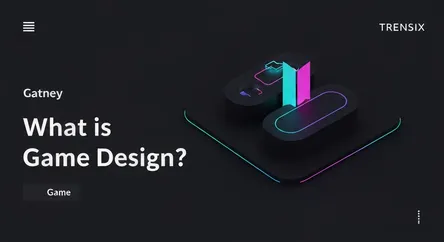Game
What is Game Design?

Explore the art and science of game design, the creative process of crafting interactive experiences, from core mechanics to compelling narratives.
What is it?
Game design is the creative process of planning and crafting the content and rules of a video game. It's the artistic and technical discipline that pre-visualizes the entire player experience. A game designer conceptualizes the core mechanics, gameplay loops, narrative, world-building, and user interface. They are the architects of fun, responsible for creating systems that are engaging, challenging, and rewarding. This field blends elements of psychology, storytelling, visual arts, and computer science to forge a cohesive and interactive world for players to explore and enjoy.
Why is it trending?
The video game industry is a multi-billion dollar giant, and its constant growth fuels a high demand for skilled game designers. The rise of accessible game engines like Unity and Unreal has democratized game development, empowering indie creators and small studios to bring their unique visions to life. Furthermore, players have increasingly sophisticated tastes, seeking innovative gameplay and deep narratives, which pushes designers to constantly innovate. The E-sports boom and the growth of streaming platforms also highlight expertly designed games, making the craft more visible than ever.
How does it affect people?
For players, game design directly shapes their experience, influencing their emotions, problem-solving skills, and overall enjoyment. A well-designed game can be a powerful tool for storytelling, social connection, and even education. For creators, it's a dynamic and fulfilling career path that combines artistic expression with technical problem-solving. It empowers them to build entire worlds and share interactive stories. The principles of game design, such as reward systems and user engagement (gamification), are also being applied in non-gaming fields like education, marketing, and health to motivate and engage users.